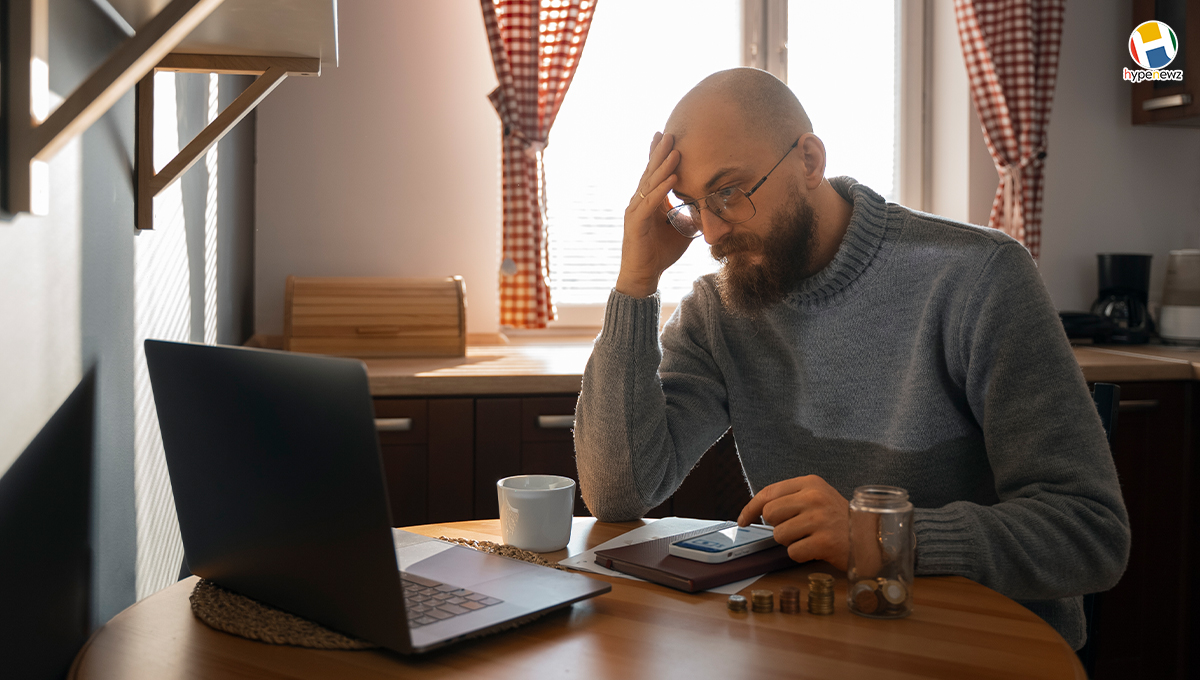
Let’s Talk Financial Anxiety And Why Your Wallet’s Not the Villain
Welcome to the era of silent stress, where checking your bank account feels like opening a horror movie. If the thought of spending money sends a shiver down your spine, you're not alone. Millions today deal with financial anxiety, a sneaky stressor that creeps into everyday life often without warning. But here’s the good news: you can tackle it without turning into a money monk. With the right mindset and some practical moves, you can calm the chaos and build a healthier relationship with your finances.
Financial Stress and Mental Health A Tangled Knot
It’s no secret that financial stress and mental health are tightly linked. When bills pile up or income feels uncertain, your brain doesn’t just worry it goes into survival mode. Sleepless nights, irritability and even physical symptoms can follow. Whether it’s job instability, debt or unexpected expenses, the causes of financial stress often boil down to unpredictability. When you feel like you’re not in control, your mental health takes a hit and the cycle begins. So how do we untangle this knot? Start with awareness, then take one step at a time.
Are You Emotionally Spending or Emotionally Saving?
Ever splurged on something just to “feel better” after a tough day? That’s emotional spending retail therapy’s dramatic cousin. It offers instant relief but often ends in regret, especially when the credit card statement arrives. Understanding your spending triggers is key. Is it boredom, anxiety or peer pressure? Recognizing the pattern helps you pause and choose logic over impulse. A little mindfulness goes a long way when emotions try to empty your wallet.
Fear of Spending Money The Other Side of the Coin
While some overspend, others are trapped by the fear of spending money. Every purchase feels risky and guilt becomes a constant companion. Ironically, this too is driven by financial anxiety just wearing a different hat. Being afraid to spend even when it’s necessary (like replacing broken appliances or investing in self-care) can keep you stuck. The goal is balance: spend with intention, not fear.
Signs You Might Be Facing Financial Anxiety
|
Symptom |
What It Might Indicate |
|
Constantly checking your balance |
Lack of financial security or control |
|
Avoiding bills or statements |
Anxiety and denial toward finances |
|
Panic during everyday purchases |
Deep-rooted fear of losing money |
|
Mood swings after spending |
Emotional connection to finances |
|
Difficulty making financial plans |
Unclear goals or fear of failure |
Managing Financial Stress One Step at a Time
Let’s talk solutions. Managing financial stress isn’t about becoming instantly rich it’s about regaining control. Start small and build momentum.
- Track your spending: Awareness is the first step toward control. Use apps or notebooks whatever works.
- Set micro-goals: Saving ₹100 a week feels doable and builds confidence.
- Create a safety net: Even a small stash can reduce panic in emergencies.
- Talk about it: Whether it’s a financial advisor or a trusted friend, sharing helps you feel less alone.
Even small wins count. Celebrate them.
Build That Buffer: The Emergency Fund Effect
No matter your income, building an emergency fund should be a priority. Think of it as your stress-shield. It doesn’t need to be huge just enough to cover basic expenses for a couple of months. It cushions you from financial shocks like medical bills, job loss or unexpected repairs. And the psychological impact is massive. Knowing you have a backup removes some of the anxiety that rides shotgun with your wallet.
Tackle Poor Money Habits with Positivity
We all have poor money habits, whether it’s ignoring bills, overspending online or never budgeting. But beating yourself up about them doesn’t help. Swap guilt with curiosity: “Why do I do this? What would feel better?” Financial growth is like fitness it’s about consistency, not perfection. Replace one bad habit with a healthier one and build from there.
How to Reduce Financial Burden Without Panic
If you're wondering how to reduce financial burden, here’s the golden rule: Simplify and prioritize.
- Cut non-essential expenses, but don’t remove all joy leave room for treats.
- Negotiate where you can: bills, subscriptions, even rent.
- Break debt into manageable chunks and celebrate each cleared amount.
You’re not failing you’re figuring it out. Give yourself permission to grow through the process.
Conclusion: You’re Bigger Than Your Balance Sheet
Financial anxiety doesn’t define your worth. It’s a feeling loud, persistent and often misleading. But with self-awareness, structure and support, you can rewrite your money story. Instead of letting your wallet rule your world, take the reins. Know your triggers, set smart systems and remember: you're not behind you're building. And in a world where money stress feels unavoidable, reclaiming peace is the ultimate financial power move.
FAQs
- How do I know if I have financial anxiety?
If thinking about money causes stress, fear or avoidance, you may be dealing with financial anxiety. Signs include checking your account obsessively or dreading bills.
- What’s the best way to manage emotional spending?
Pause before any purchase. Ask: “Do I need this or just feel like I do?” Keeping a spending journal helps identify emotional patterns.
- Can building an emergency fund really reduce anxiety?
Absolutely. Even a small emergency fund provides a sense of control and reduces panic during unexpected expenses.
- Is it bad to fear spending money?
Not always but when fear stops you from necessary spending or enjoying life, it's a sign of financial stress that needs addressing with mindful budgeting.